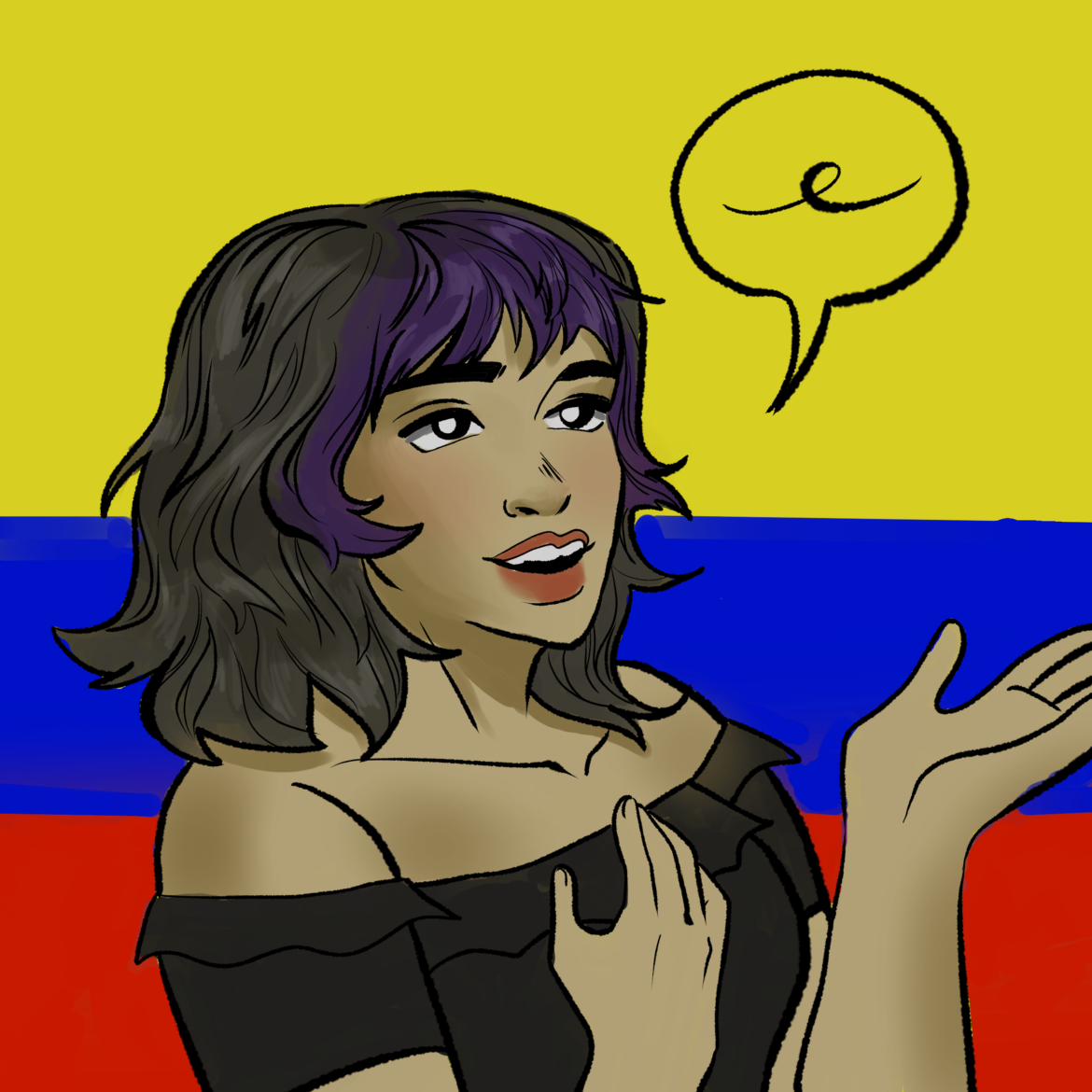My parents both immigrated from Ecuador when they were around pre-teens. Though they never met in Ecuador, they found each other when they worked for the same company in New York City.
I grew up in a suburban town in New Jersey surrounded by family that spoke Spanish, but I struggled with doing it myself.
Although my extended family spoke Spanish conversationally with one another or some form of Spanglish, my parents only ever spoke to me in English. I picked up on Spanish as a child as I was always being taken care of by my grandmother who spoke little to no English but lost my ability as I grew older and went to public school.
I continued to lose my fluency as I got older no matter how hard I tried to sustain it.
There were rarely opportunities for me to practice other than being around my family who would then consequently tease me for incorrect pronunciation, conjugation and for being “white-washed.” I eventually lost total confidence in my ability to speak Spanish and rarely ever spoke it unless absolutely necessary.
Though my hometown was primarily White, I had many Dominican friends who all spoke fluent Spanish. This brought a sense of comfort to me as I had found people who I could relate to, but I was always jealous of their effortless ability to switch between English and Spanish. Their parents spoke Spanish to them at home and therefore they mastered being bilingual.
I had a friend who would diminish my ethnicity and declare I was not truly Latina because I could not communicate in Spanish. She would relentlessly belittle my struggle and call me “Americanized” and White. We are no longer friends. But this did a lot of damage to how I viewed my identity as a Hispanic.
I knew that many of the people around me who were bilingual had parents who spoke Spanish regularly to them, and I did not have that same chance. I felt guilty and not like a true Ecuadorian because of my inability to speak Spanish. The people around me and online had engrained in me that being able to speak Spanish was a vital part of Hispanic identity. If you are not able to, then you are not actually Hispanic.
For a long time, I believed that sentiment to be true. I would feel ashamed, and I still do sometimes. Although I could understand a lot of Spanish, I could not speak it for some reason. I became too embarrassed.
I see Latina celebrities like Jenna Ortega, Selena Gomez and Cameron Diaz get shamed for this too. It brings me some comfort that we are in the same boat, but it’s a disheartening one to be in.
Stars Insider writes “[Cameron Diaz] has been very vocal about her ineptitude to speak Spanish, often citing she sometimes even struggles with English. It seems that all she has inherited from her Cuban ancestry is her Hispanic last name!”
In a different article from Distractify, Diaz says, “…‘grew up with the Cuban heritage, the Cuban culture, the food, the language, although I don’t speak Spanish.’”
People quickly and easily dismiss someone’s entire ethnicity without knowing the full truth. Similarly, though I did not regularly speak Spanish I grew up with Ecuadorian foods, Latin music every Saturday morning to clean the house, telenovelas and the superhuman ability to fall asleep at parties that lasted until 2 a.m. with music blaring.
According to a study by the Pew Research Center, “54% of Hispanics who say they speak no more than a little Spanish say another Hispanic person has made them feel bad for it.”
My inability to speak Spanish properly should not get to dictate my ethnic identity. This kind of exclusion is isolating and unnecessarily divides the Latinx/Hispanic community further. People should be allowed to celebrate and connect with their background in whichever way they see fit.
I believe that it is well past the time for non-Spanish-speaking Latinx people to stop being bullied by others, oftentimes including their own families, for their difficulty with the language. I am proud to be Latina and I now know that it does not make me any less Latina.



